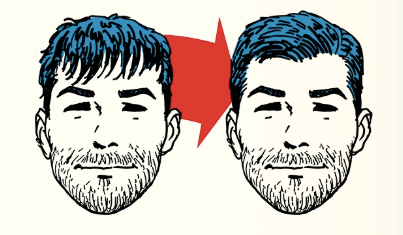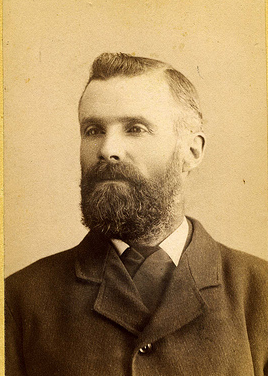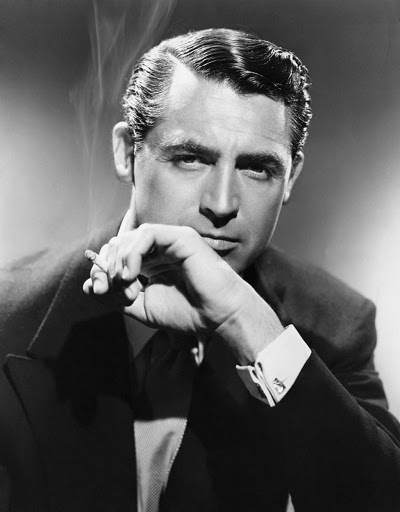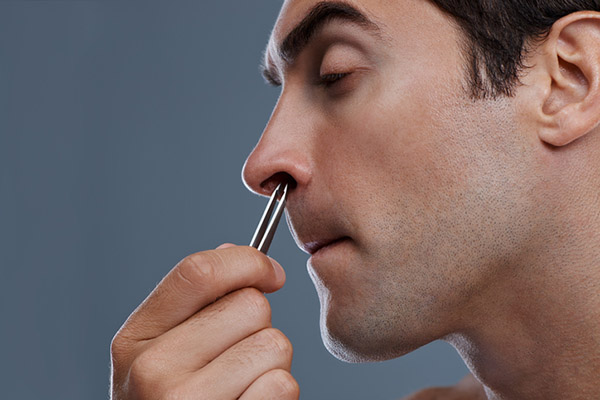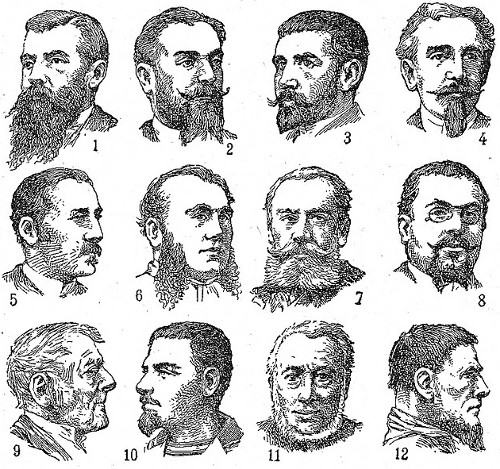
Wouldn’t it be nice if there was a yes or no answer to every question of aesthetics?
It’s certainly how magazines and pop culture presents things when it comes to how a man should or shouldn’t look.
But that’s rarely how the human brain works. As we’ve discussed before in regards to style, there are definitely some black/white rules, but for the most part each man needs to discover what works best for him. He needs to express himself through his style choices, within some basic frameworks.
One fascinatingly complex issue that has come back into the spotlight recently is that of facial hair. It’s not something you can break down into basic good/bad or right/wrong strategies. It all depends on the individual.
Forget anyone who tells you that beards are a 100% guarantee to be an alpha male lady-killer. Also forget anyone who says they’re an automatic job-loser and impossible to pair with a business suit.
It’s just not that simple.
With a little bit of research, you can figure out the length and style of facial hair that’s right for your life, your career, and your goals.
Facial Hair and Societal Perception

Does a beard look good on you?
Should you shave the stubble before your date?
Do you need to give yourself a trim before the big interview?
Scientific research can tell you what other people are thinking when they look at your beard, which should give you a good idea of whether a beard is the right choice for your life.
Here’s the most basic breakdown. When you have distinctive facial hair (anything visible, even stubble), these are the traits people tend to associate with you:
- aggression and dominance
- maturity
A clean-shaven man, on the other hand, is associated more with the following traits:
- sociability
- health/cleanliness
Aggression & Facial Hair
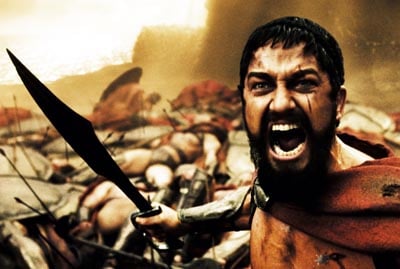
This man is aggressive. And yes — that is an understatement.
A beard is a sign of active testosterone in the body, and human brains recognize that as coming with the potential for more aggression.
As a result, men with beards are often seen as more angry, aggressive, or dominant, even if their personality has none of those traits.
In one study, photographs of bearded men and non-bearded men making the same aggressive facial expression (scowling, baring teeth, etc.) were compared. The bearded men were rated as significantly more aggressive and intimidating, even when all other factors were identical.
That’s not inherently a bad thing — but it is a thing to keep in mind if you choose to wear a beard. For example, it’s never a great idea to be the guy at the front of a protest rally, face-to-face with the cops, and also sporting a huge beard!
Be sure to listen to our podcast on the science of facial hair:
Maturity & Facial Hair
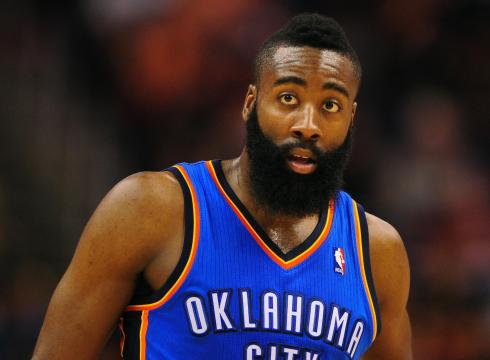
With his manly beard, you might be surprised to know that James Harden is only 24.
Since the ability to grow a beard is a sign of physical maturity in men, it is naturally associated with age and grown manhood — as is evidenced by a study that found that beards were associated with maturity, power, and higher social status by both men and women.
Men with beards are also, predictably, perceived as being more “masculine” or “manly” than men without. A large 2013 study asked both men and women to rate photographs that showed one man with varying stages of facial growth. The longer the hair in the photograph shown, the more masculine he was rated.
Sociability & Facial Hair
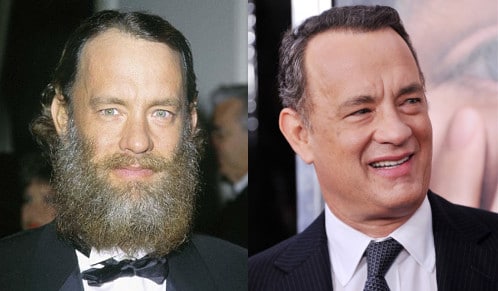
Which fellow would folks feel more comfortable approaching?
While beards are associated with dominance, power, and maturity, on the flip side of the coin, that kind of masculine image can make people feel a little intimidated; one study found that bearded men are perceived as 38% less generous, 36% less caring, and 51% less cheerful than their clean-shaven brethren.
Likely for the same reasons that beards are seen as a sign of aggression, going beardless is often interpreted as a sign of being well-socialized and able to integrate with others.
Breaking this down to any kind of alpha/beta male idea is oversimplifying — it has more to do with what makes a man look like he takes charge versus one who gets along well with others.
Studies have found clean-shaven men to be more highly-rated in terms of social skills than their bearded brethren, based purely on still images — there was no actual observed socializing to base judgments on.
Cleanliness & Facial Hair
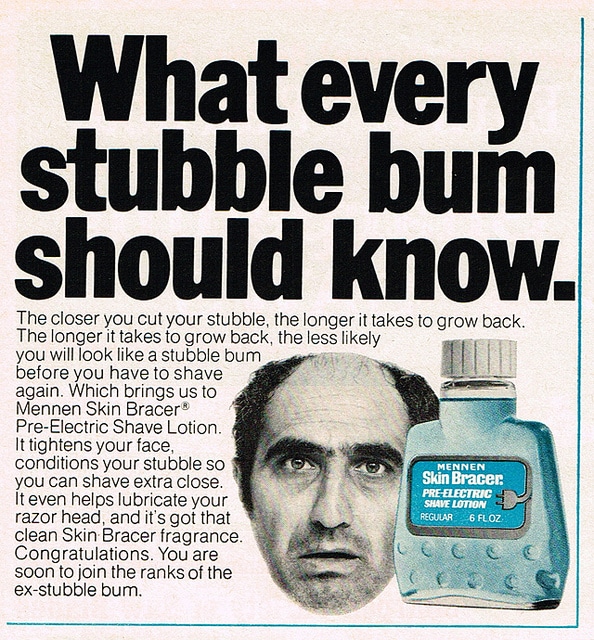
Going clean-shaven gets you points for cleanliness, but beards aren’t necessarily seen as sloppy. In another 2013 study, it was stubble that took the biggest knock for perceptions of health and cleanliness. A patchy, light stubble was rated the lowest — most viewers interpreted it as a sign that the wearer didn’t groom regularly.
That doesn’t mean people found stubble inherently unattractive. Different studies have found different amounts of facial hair most “attractive” (more on that in a minute). But as far as the wearer’s perceived health and cleanliness go, a clean shave is best, followed by a full beard.
So beards make you look like you’re in charge, right?
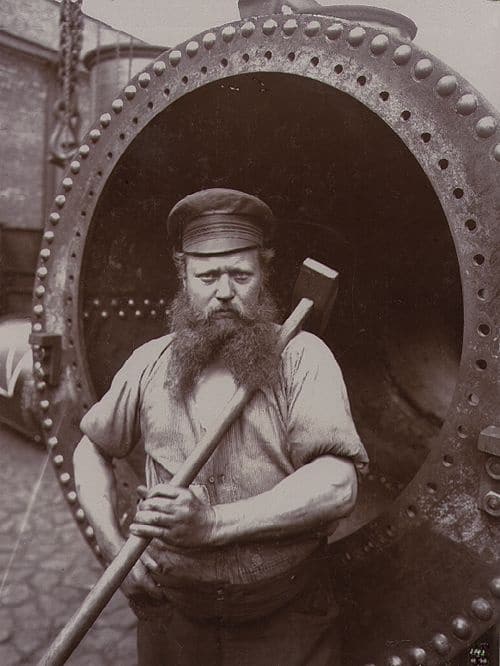
Do these perceptions mean every man should run out and grow a large beard so that everyone will see him as a mature and “doesn’t take no for an answer” type of leader? Of course not.
Being perceived as “manly” or “dominant” isn’t always useful. Not all social settings call for an aggressive leader. The more socialized appearance of a clean shave might be more useful, for example, in job interviews where the interviewee will be expected to be part of a team when hired.
Similarly, older men who already have a few signs of aging (wrinkles, gray hair, etc.) don’t need a beard to emphasize their maturity. They can sport a clean shave for the perceptions of health and youthfulness it brings, and rely on the rest of their appearance and comportment to speak to their maturity.
Facial Hair and Employment
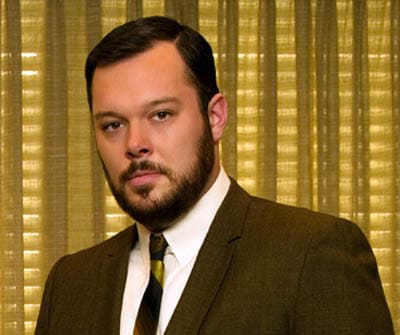
Was it Paul Kinsey’s beard that kept Don from recruiting him to Sterling Cooper Draper Pryce?
So let’s talk about a key concern for a lot of men: can you get a job with a beard? Can you keep a job with a beard? Will a beard get you fired even if it’s not officially against company policy?
These are common concerns, and they’re not entirely misplaced. Employment and performance reviews are as much about unwritten rules as they are about written ones, and you are probably going to come across someone who has strong feelings about what is or isn’t appropriate beardedness at some point in your life.
So what’s the long and short on beards in the workplace?
A few scientific studies have looked specifically at employers when examining perceptions of facial hair. A 1990 survey of managers actually demonstrated a preference for beards. The participants looked at ink sketches of both bearded and clean-shaven men, and the managers rated bearded men as having a better personality, appearance, competence, and composure than unbearded men.
That said, the men and women in that study were looking at idealized sketches. Beards were likely to look fuller, neater, and more “perfect” than they often do in person, so take it as an endorsement of very well-maintained beards and nothing more.
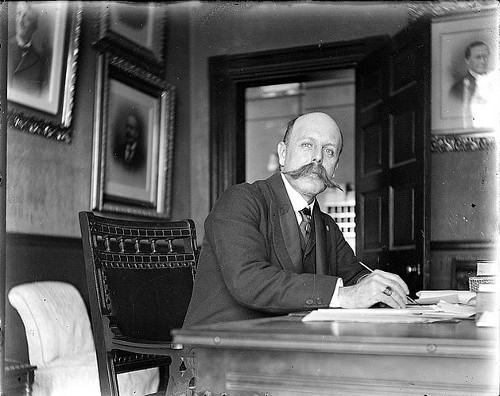
We’ve made beards the focus of this article, but of course a manly mustache is a worthy piece of facial hair as well. In fact, studies show that men with mustaches are more likely to be hired at job interviews and make 8.2 percent more than men sporting beards and 4.3 percent more than clean-shaven men.
A more recent study of HR professionals, commissioned by Gillette, found a strong preference for “well-groomed” candidates. Gillette’s interpretation is that “well-groomed” meant clean-shaven, but the wording is ambiguous, and Gillette — a purveyor of grooming products — obviously has a horse in the race here. Stubble, however, was singled out as a “red flag” during job interviews, suggesting that it’s better to be either clean-shaven or fully bearded for those.
Perhaps most interesting was a study that asked participants to both rate pictures of men and guess their occupation. Bearded men were rated as “unconventional,” but also as “good,” and were associated with less conservative careers like “college professor” and “artist,” while clean-shaven men were associated with jobs like “lawyer,” “bank clerk,” and “politician.”
The takeaway: for job interviews, you need either a clean shave or a very neat beard. Make sure the outlines are razor-sharp (no pun intended) if you go bearded.
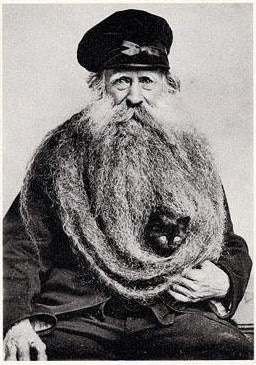
Bonus tip: If you do interview in a beard, remove your cat from it beforehand.
For continuing employment, growing a beard should be safe in most professions, and even beneficial. The exceptions are the most conservative and strictly traditional fields like law and finance. Stubble is never rated well in the workplace, however, so try to start your beard over a vacation or some other situation where you have enough time off to grow past the stubble phase before returning to work.
Facial Hair, Self-Perception, and Behavior
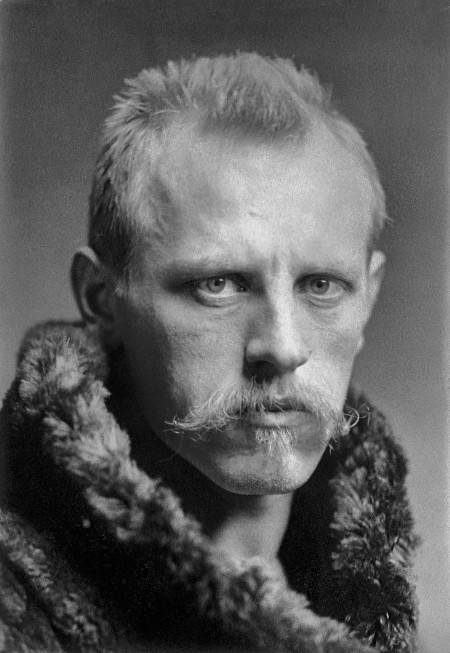
Without his mustache spurring him on, who knows if Norwegian explorer Fridtjof Nansen would have reached so far North.
Facial hair can obviously affect the judgment (and therefore the behavior) of people who see them. But what about the wearer?
Turns out that having a beard on your face can change your own behavior and self-perception.
It hasn’t been researched all that extensively, but one study had clean-shaven men self-evaluate while wearing either fake beards, bandanas, or nothing at all on their head. The bearded group rated themselves as much more “masculine” than the other two groups, even though they knew the beards were fake — just seeing the outline of hair on their faces made them think of themselves as more manly.
As with appearance in general, self-perception does affect behavior. A man whose brain is telling him that he’s “manly” is more likely to act in an assertive and dominant manner than one whose brain isn’t receiving that signal. (And that’s just taking the visuals into account — any man who’s worn a beard knows that there’s a secret, satisfying pleasure in giving it a scratch from time to time!)
So yes, sporting facial hair can affect your behavior. If you’re feeling like you need a little boost to your self-confidence and your assertiveness, a beard or mustache might be the way to go.
Similarly, if you’re struggling with anger management, a shave might be in order.
Beards and Sexual Appeal
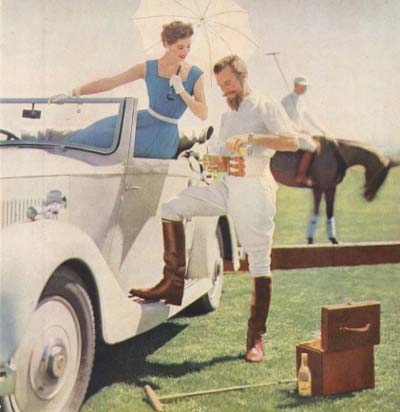
We’ve saved the best for last, because this is what most of you really want to know: will a beard help you with women?
Sorry guys. There is no definitive answer. You know how you can ask different girls about your beard and get different responses? (Try it, if you haven’t.) The same is true for society in general. Some people just like beards more than others.

Ladies love a nice patina of stubble. If a man can also crack a bullwhip like nobody’s business, all the better.
That said, we do have some general trends for you:
- Studies have indicated that women find facial stubble the most “attractive” look when it comes to facial hair. One study went a step further, separating “light stubble” from “heavy stubble,” at which point women found heavy stubble the most attractive and light stubble the least — call it the “no peachfuzz, please!” value judgement.
- Unsurprisingly, women found men with facial hair more “masculine” than men without.
- Likely tied to the idea that greater masculinity=better provider, women rated men with full beards as most likely to have good parenting skills.
- Clean-shaven and full-bearded men were rated higher on personal cleanliness than men with stubble of any length.
So, long story short, how facial hair will help you in your quest for love depends largely on the sort of partner and relationship you’re looking for.
If you want to settle down and have kids, and are looking for someone that feels the same, a full beard might be best. If you’re just flirting and having fun, a few days of stubble will work better — but make sure it’s thick and even.
Interestingly, research has shown that in a favorable marriage market, men are more likely to grow beards, while they are less likely to do so in a tougher market. This has lead researchers to conclude that men shave in the hopes of making themselves seem safer and more approachable to women.
All in all, at the end of the day, remember that outliers happen.
These are social trends, not fixed rules.
Some people are going to have very strong opinions about beards and some aren’t.
You’ll find out which are which the same way the rest of life works: trial and error and lots of patience!
Watch a Video Summary
- AoM Community “Men with Beards” Group — keep the discussion going within the AoM forum!
- BeardBrand — Eric the Urban Beardsman has cultivated an amazing channel with solid information and great products!
- How To Grow A Beard — classic AoM article.
- 20 Manly Mustaches — classic AoM article.
____________________________________
Written by Antonio Centeno
Want more information about Men’s Style & Grooming?
Click here to grab Antonio’s FREE ebook.




